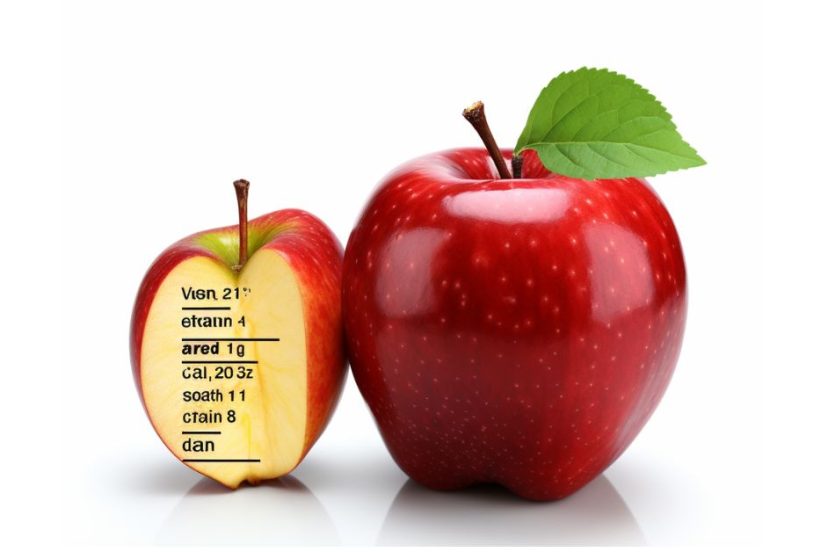Apple Juice Nutrition Facts: The Powerhouse of Health Benefits
One of my all-time favorite juices is apple juice. Not only is it delicious and refreshing, but it also comes packed with a plethora of essential nutrients and health benefits that can give your overall well-being a significant boost.
In this post, I will delve into the nutrition facts of apple juice, explore its numerous health advantages, provide tips on choosing the right apples, share juicing techniques, and even discuss its suitability for specific health conditions. So, let’s raise a glass to the fantastic world of apple juice and uncover its secrets!
Nutritional Content of Apple Juice: The Goodness in Every Sip
Vitamins and Minerals
Apple juice is rich in a variety of essential vitamins and minerals that contribute to a healthy body. It is a great source of vitamin C, an antioxidant that supports the immune system, aids in collagen production, and enhances skin health. Additionally, apple juice contains significant amounts of potassium, which plays a vital role in maintaining heart health and regulating blood pressure.
Antioxidants
One of the key components of apple juice is its antioxidant content. Antioxidants help combat oxidative stress and free radicals in the body, reducing the risk of chronic diseases and promoting overall well-being. Quercetin, a potent antioxidant found in apple juice, has been linked to anti-inflammatory properties and may help protect against certain types of cancers.
Natural Sugars
Apple juice contains natural sugars, primarily fructose, and glucose. While it’s essential to be mindful of sugar intake, the natural sugars in apple juice can provide a quick energy boost, making it an ideal natural alternative to sugary beverages.
Health Benefits of Apple Juice: The Juicy Rewards
Boosts Immunity
The high vitamin C content in apple juice makes it a fantastic immune booster. Regular consumption can help strengthen the body’s defense against infections and illnesses, keeping you feeling healthy and energetic.
Supports Digestive Health
Apple juice contains dietary fiber, which aids in digestion and helps prevent constipation. Pectin, a type of soluble fiber in apples, promotes gut health by supporting beneficial gut bacteria.
Heart Health
The potassium in apple juice contributes to heart health by helping to lower blood pressure and reduce the risk of cardiovascular diseases. Additionally, the antioxidants in apple juice play a role in reducing LDL cholesterol levels, promoting a healthy heart.
Hydration
Staying hydrated is essential for overall health, and apple juice can be a tasty way to keep your fluid levels up. It’s an excellent option for those who struggle to drink plain water.
Skin Benefits
The combination of vitamin C and antioxidants in apple juice supports healthy and radiant skin. It helps in collagen production, reducing signs of aging and maintaining skin elasticity.
Weight Management
As part of a balanced diet, apple juice can aid in weight management due to its natural sugar content, which can help satisfy sweet cravings without the need for high-calorie desserts.
Choosing the Right Apples for Juice: The Key to Deliciousness
Best Apple Varieties
When juicing apples, some varieties work better than others. Popular choices include Granny Smith apples for a tangy taste, Honeycrisp for a perfect balance of sweet and tart, and Gala for a naturally sweeter juice. Experiment with different varieties to find your preferred flavor profile.
Organic vs. Conventional Apples
If possible, opt for organic apples to minimize exposure to pesticides and chemicals. Organic apples not only contribute to a healthier juice but also support environmentally friendly agricultural practices.
Juicing Tips and Techniques: Squeeze the Best Out of Your Apples
Fresh vs. Store-Bought Juice
While store-bought apple juice is convenient, fresh homemade apple juice retains more nutrients and flavor. Making your own juice allows you to control the ingredients and ensures you’re getting the best quality.
DIY Juicing vs. Commercial Juicers
Investing in a good juicer for home use can be a game-changer. Commercial juicers in juice bars can also deliver high-quality juice, but be cautious of added sugars and preservatives in some commercial products.
Combining Apple Juice with Other Ingredients
Get creative with your apple juice by combining it with other fruits and vegetables to boost its nutritional value and taste. Try adding carrots, ginger, or beets for a delightful twist.
Serving and Storage Recommendations: Savor the Flavor
Serving Size
When consuming apple juice, moderation is key. A standard serving size is typically 8 ounces (240 ml) for adults, while children may require smaller portions.
Proper Storage
To preserve the freshness and nutritional content of apple juice, store it in a sealed container in the refrigerator. Freshly squeezed juice is best consumed within 24-48 hours.
Apple Juice for Specific Health Conditions: Tailored Benefits
Apple Juice for Children
Apple juice can be a healthy addition to a child’s diet, providing essential nutrients and hydration. However, it’s essential to offer it in moderation to avoid excessive sugar intake.
Apple Juice for Pregnant Women
Pregnant women can benefit from the vitamin C and potassium in apple juice. It helps support maternal health and fetal development. Ensure it fits within your overall dietary plan.
Apple Juice for Diabetics
While apple juice can be enjoyed by diabetics, it’s crucial to monitor blood sugar levels and consume it in moderation due to its natural sugar content.
Side Effects and Precautions: The Fine Balance
As with any food or beverage, consuming apple juice in excessive amounts may lead to negative effects such as stomach discomfort or diarrhea due to its natural laxative properties. Balance is key, so enjoy it in moderation as part of a well-rounded diet.
Conclusion: Sip Your Way to a Healthier You
In conclusion, apple juice is a delightful and nutritious beverage that offers an array of health benefits. From boosting your immunity to promoting heart health and maintaining radiant skin, this fruity elixir deserves a place in your daily routine. Remember to choose the right apples, consider juicing techniques, and savor the natural goodness in every sip. Whether you’re a juicing enthusiast or just starting your juicing journey, apple juice is a fantastic choice for a healthier and happier you. There you go I hope you got some value from my apple juice nutrition facts post
FAQs – Apple Juice Nutrition Facts – Your Juicing Queries Answered
- Is apple juice suitable for toddlers?
- Yes, apple juice can be introduced to toddlers in moderation, but it should be diluted to reduce sugar intake.
- Can apple juice help with constipation?
- Absolutely! The fiber content in apple juice can aid in promoting healthy digestion and relieving constipation.
- Are there any allergens in apple juice?
- Apple juice is generally well-tolerated, but individuals with apple allergies should avoid it or seek medical advice.
- Can I use apple juice in smoothies?
- Yes, apple juice adds natural sweetness and nutrients to smoothies, making it an excellent base liquid.
- Is cloudy apple juice better than clear apple juice?
- Cloudy apple juice contains more pulp and fiber, offering additional health benefits compared to clear juice.
Remember, juicing is a wonderful way to nourish your body, but it’s essential to complement it with a balanced diet and an active lifestyle for optimal well-being.
Please remember that while juicing can be a part of a healthy diet, it should not replace whole foods and a balanced diet. Always consult with a healthcare provider or a registered dietitian for personalized advice. Cheers to your health and happy juicing!
Additional resources on apple juice nutrition facts, here are two relevant links to scientific studies and commentaries that relate to the content of the article:
- The potential role of flavonoids in the prevention of chronic diseases related to inflammation: This article talks about the role of flavonoids, the type of antioxidant found in apple juice, in preventing chronic diseases.
- Potassium intake, stroke, and cardiovascular disease: This study examines the role of potassium (which is found in apple juice) in lowering blood pressure and reducing the risk of stroke and heart disease.




